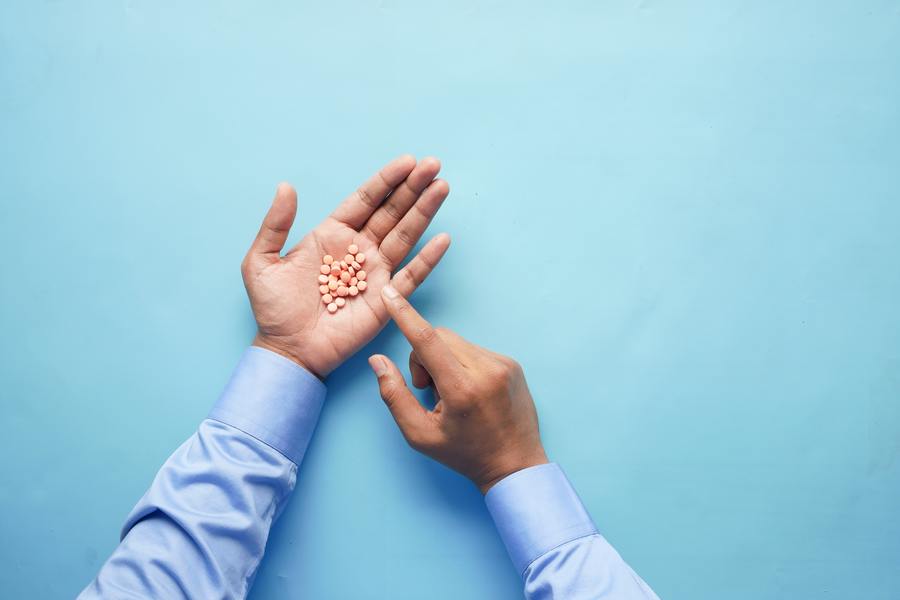What You Should Know About COVID-19 Vaccine and Pain Relievers
Reema has woken up with a little scream. She just turned over in her sleep and as her weight landed on her arm where she got her vaccine shot, she was woken up unpleasantly. She feels like she’s been stabbed. The pain is running down her arm and into her head. She has to work tomorrow; she cannot afford lost sleep tonight.
Reema stumbles over to the kitchen where the family keeps their emergency meds. She finds the strip of painkillers that are always the and fills a glass of water up to pop the little ticket to sweet relief. But her father comes rushing into the kitchen to stop her from what he has guessed she is doing and they get in an argument over whether she should or should not take the painkiller.
There’s a million things that stress a person out before their Covid-19 vaccine jab. Starting with routine urbaner worries like, will I make it on time? Then there’s scarier ones: Will it hurt so much that I’ll scream like a child? What if I have complications? What if my arm hurts for days and days? What if I can’t get out of bed for days because of a body ache? Worst of all: what if I can’t work because I’m in too much pain?
Why painkillers seem so appealing after the Covid-19 vaccine
Before and after the shot, there is tremendous temptation to reach for your stash of Combiflam (or any other over-the-counter painkiller) to soothe aching muscles and the throbbing spot where you received the injection. Especially because everyone reacts differently to the vaccine, people might feel pressured to normalize fast and get back to work (either remotely or even at the office) for fear of seeming less dedicated – especially in these uncertain times where people are losing sleep over possible job loss. Reema is not alone in her midnight panic about work the next morning.
Others might be tempted to resort to painkillers because searing pain from the jab spot wakes them up as they toss in their sleep, as a lot of people – including Reema – do.
Some just want to shake the feeling of malaise.
But say no! Here’s why:
Painkillers fool you into thinking you are “better”
Pain killers work by inhibiting the release of chemicals that tell your brain that you are in pain. Yes indeed, the pain is still there. You are just numb to it and that’s why when their effect wears off after a few hours, the pain returns with a vengeance.
If your body is hurting and you feel sick after taking the vaccine it is because your body working in “sick mode”.
The vaccine does fool your immune systems into thinking that you have contracted the virus (using only protein from the virus). By doing this it encourages your immune system to generate antibodies (your immune system’s version of soldiers). This takes a lot of work and you cannot be running about as usual while this is happening especially if your body is asking for down time through signals like body ache.
By taking a painkiller at this point, Reema would simply be denying her body the rest that it is requesting. If you experience no pain, you can go about as usual, but pain is like your immune calling for a lockdown of your body. Don’t ignore your immune system.
Painkillers should not be abused in general
This is a word of advice not just in the context of the vaccine, but in general. In a lot of first world countries, pain medication is not so freely available because of its addictive nature.
If you have ever been on pain relievers after a surgery or a dental procedure (or for menstrual cramps) you might notice how eagerly you start to reach for them after a few hours, how effectiveness reduces over time (calling for higher dosage) and how they affect your sleep. That’s exactly why painkillers should be approached with caution and should ideally be consumed only upon prescription and for a very short time. They are highly addictive.
There really isn’t sufficient research on drug interaction
The vaccine is still a fairly new thing in this world. Scientists cannot realistically have tested how it interacts with every chemical on the medical landscape. It certainly hasn’t been tested against all the pain relievers out there.
Worse, given that everyone is responding to the vaccine in differing ways, who’s to say what catalyst effect a pain reliever will play in vaccine response?
This goes for all the drugs and medication that you might be consuming routinely. Some medication might be integral to sustaining your health – talk to your doctor about possible interactions before you go in for your Covid-19 vaccine.
Painkillers could inhibit immune response
Given the timelines that researchers are working with, the volume of complications that need to be researched and the pace at which the virus is mutating there is admittedly no specific research saying that pain relievers inhibit the efficacy of the Covid-19 vaccine.
But that said, there has been quite a bit of research over the years to suggest that pain killers in general inhibit your immune system.
Reema has taken the vaccine to activate her immune system, to send it into overdrive to prepare antibodies. A painkiller could have the opposite effect on her immune system thereby defeating the very purpose of going through the vaccination process in the first place.
In general, after the vaccine it is advisable to avoid any medication – especially pain relievers – that are not absolutely essential to your health.




























